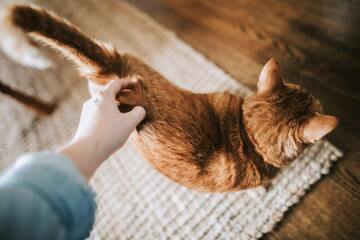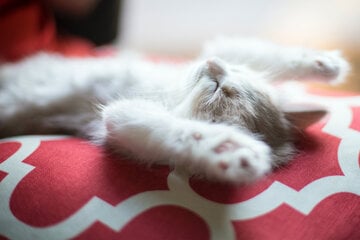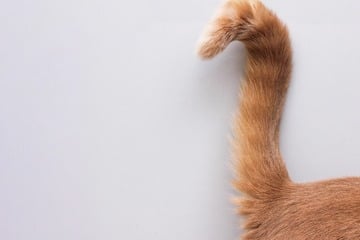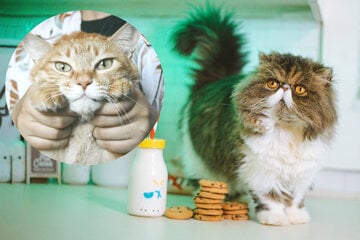Why do cats purr? Everything you need to know
Whiskers flicking, tail twitching, quiet murmuring, and gentle purring are all features of a peacefully sleeping cat. Why do cats purr, whether they're asleep or wide awake? Let's take a look.
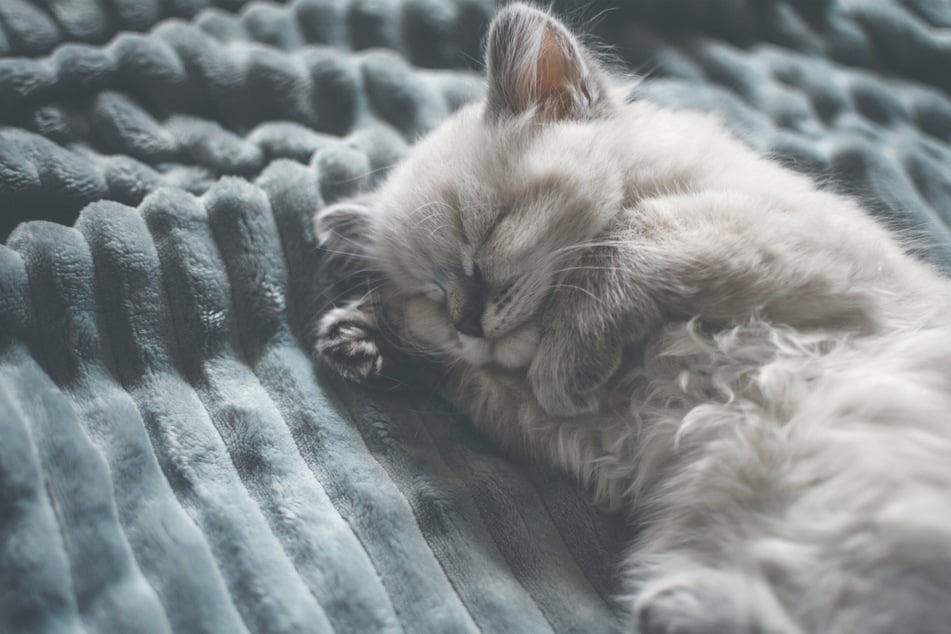
There is nothing more calming and peaceful than a gently purring cat, whether it's asleep or awake. Slightly vibrating and clearly happy, if your cat purrs in your presence it is a sign of love, affection, and trust. What's the real reason behind this behavior, though, why does your cat purr?
In this cat guide, TAG24 will dive into why cats purr. Our beautiful feline friends will rumble in an assortment of situations, but what does it mean? Oh, and why do cats drool when they purr? Let's take a look.
Why do cats purr?
Cats purr when they are relaxed and calm, rumbling gently in a happy, sociable way. It's impossible to make total sense of purring (you can hardly ask your kitty, after all), but there are a variety of potential reasons that may have triggered these little grumbles. The most important thing to note is that it is generally a welcome and positive behavior that you shouldn't be afraid of.
Here are a few brief reasons why your cat might be purring:
- It is happy, content, and comfortable
- It's hungry and trying to communicate a want for food
- Some scientists believe that purring creates vibrations throughout a cat's body that can actually help heal wounds
- On top of inducing medical help, cats purr to sooth themselves mentally
Important: If your cat is clearly purring due to an injury or some kind of problem, you need to see a veterinarian. While some scientists believe that purring helps in the healing process, none will say that it is a be-all and end-all, so it's best to get medical advice.
Why do cats purr when you pet them?
If you are petting your cat, it is likely purring out of love and enjoyment. These happy noises are a sign that your kitty is enjoying the attention that it is being given and that your pets are truly "hitting the spot". Keep an eye out for other elements of your cat's body language, though, as this enjoyment can seemingly change in the blink of an eye.
Think of purring as a rolling ocean of calm, positive energy that rumbles out of your kitty's body when it is feeling those particular emotions. You may find that when your cat is pushing you for pats, or when it is sleeping in your lap, it will be purring even before the petting begins.
Why do cats purr when they sleep?
Let's get something out of the way first: Yes, cats can snore; yes, this could explain your cat's apparent "purring". They can also, however, purr when they sleep. Again, if your cat purrs during its sleep it is likely feeling safe, warm, comfortable and happy. It is unlikely to be in deep or REM sleep if it is purring, but it can also be a symptom of dreaming.
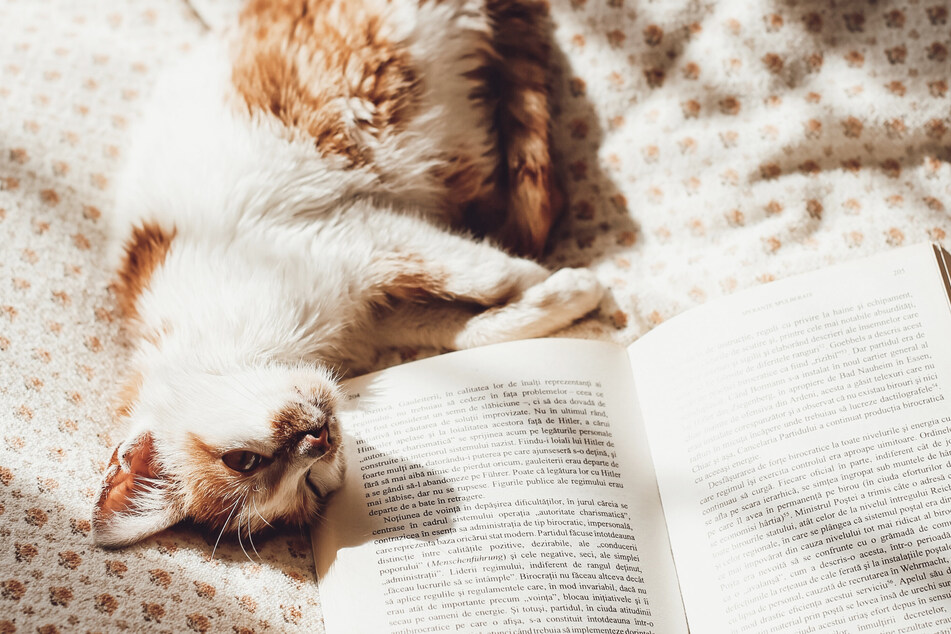
Why do cats lay on you and purr?
The answer to this one is especially simple: If your cat has chosen to lay on you and is now purring, it's because it loves you. That love is likely to be quite strong, and based on a deep-seated trust you have built with your little fluffy feline over the past few months and years. Relax and enjoy the moment!
Why do cats purr and then bite you?
If you have ever petted a cat, you have likely noticed that they sometimes bite suddenly and unexpectedly. There are a number of reasons for this behavior, but it is usually innocuous. Of course, if you are concerned for your cat's health then it should be taken to a veterinarian.
Cats may purr and then bite you because of these reasons:
- Cats, and especially kittens, are incredibly playful little animals. This bite might be a "love bite," or a playful little nibble meant to be part of a game.
- If you have accidentally touched a part of your cat's body that is particular sensitive, a wound, or discovered a broken bone, your cat is likely to switch suddenly from happy to angry.
- Some cats have behavioral problems that cause rapid changes in temperament and mood. This can result in unexpected aggression.
- This is likely just a random reaction to something causing excessive over-stimulation.
Be cautious with your kitty. Excessively aggressive behavior is not normal, and could indicate that something is wrong with its health. This goes double if this aggression is new or unusual.
Why do cats purr when they are dying?
Purring is a form of communication, and a physiological response to certain stimuli. As a result, the phenomena of purring in dying cats is neither something unusual, nor something that has a definitive explanation. Some say that it is a calming mechanism, and others say it is an involuntary anatomical behavior. Whatever the reason, though, it's certainly interesting.
Why do cats drool when they purr?
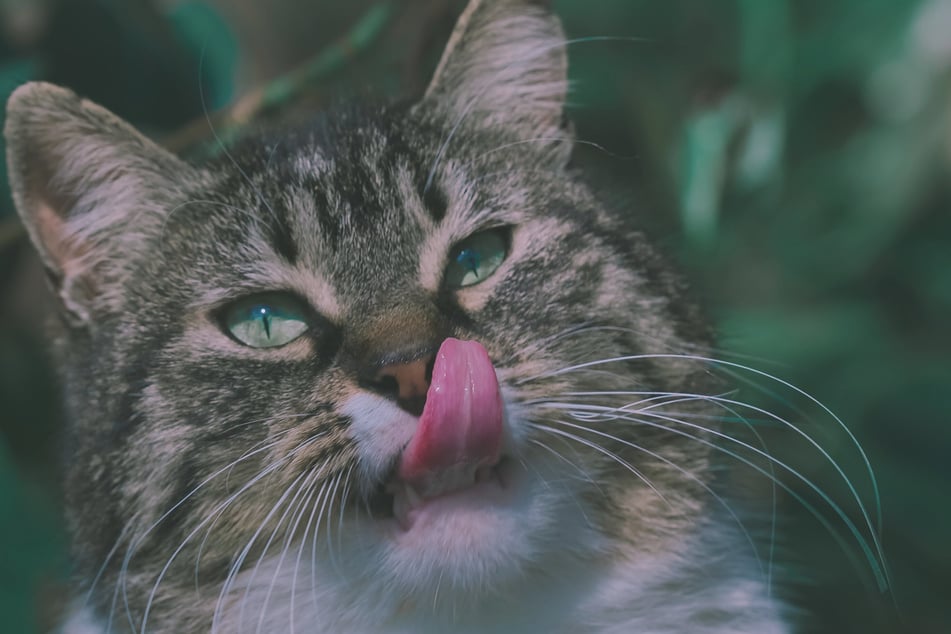
If your cat is drooling while it purrs, this is likely because their facial muscles have relaxed and they are not focused on what their body is doing. On top of that, happy hormones actually have a habit of generating large amounts of saliva. As a result of this, happy and content cats will often drool more than cats that are a little more on-edge or unhappy.
It's important to note that drooling and purring are not necessarily linked. A cat might drool while not purring (for example, due to a medical issue or poor dental care), and a cat's purring and drooling may be completely unrelated. If you're ever worried about your cat's health, it's best to go to your vet immediately.
Cat purring is an incredibly important social behavior
Many moods and experiences are conveyed through the gentle rumbling of a purring cat. It's an important and useful social behavior that gives us an insight into their true emotions. If your cat is cuddled up close and purring, it's a feeling of safety and satisfaction that drives the behavior.
A cat and its owner have a very deep, strong, and strange relationship. Your cat loves you but is unlikely to show that love in ways you would expect from a human. Cuddling and purring is the closest you'll get, so enjoy it!
Cover photo: Unsplash/Maxim Mushnikov
